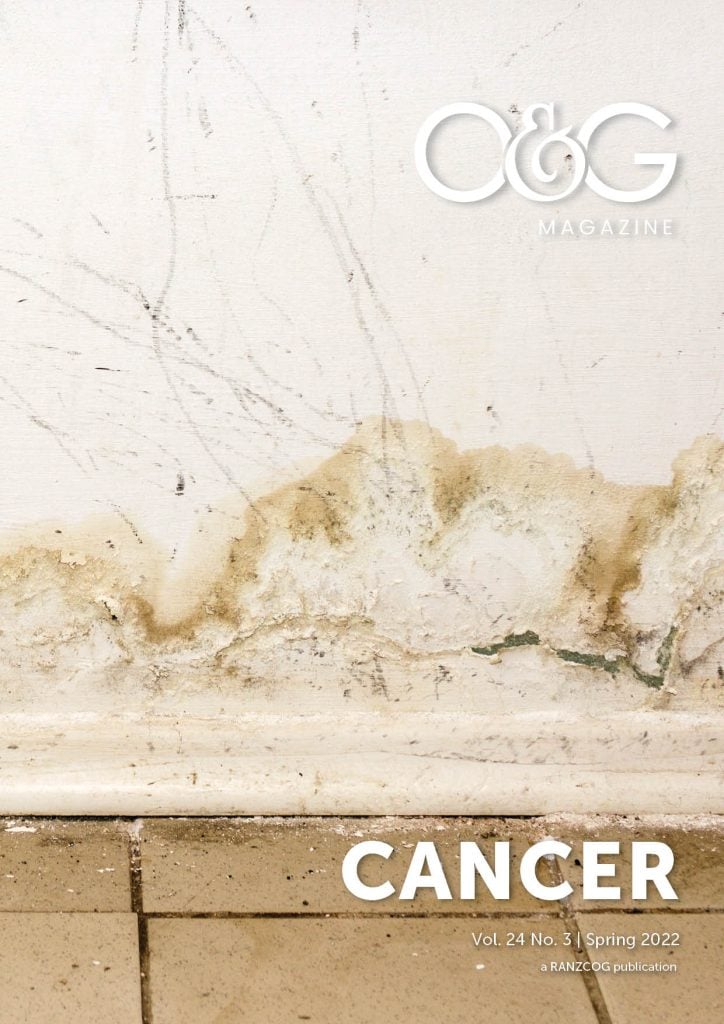Does Sims’ speculum need a different name?
Dear Editor,
A student article ‘Lucy’s Legacy: why Sims’ speculum needs a different name’ in O&G Magazine, 2021, Vol. 23 No. 4, declared that the nineteenth century attempts to surgically repair vaginal fistulae were ‘abhorrent … unethical, sexist, and racist … [while] condoning the history of violence and abuse … the brutality of his [Sims] actions.’
As is revealed in the ‘Lucy’s Legacy’ article, the students named Dr Kameelah Phillips O&G New York, who is overtly critical of Sims and who initiated the ‘Lucy speculum’ idea.
Also, the article’s citations depended on two staff writers, Zhang (The Atlantic) and Brynn (History), both also critical of Sims, which helped form the student’s opinions. Those named staff writers perpetuated both facts and pseudo-history in their writings, based on opinions from G. J. Barker-Benfield, Harriet Washington, Deborah Kuhn McGregor, and Deirdre Cooper Owens.
Those four named academic authors were highly critical of the development of gynaecology, and of J. Marion Sims. Scrutiny of their texts shows factual cited material, combined with radical opinions (no citations) that are without historical basis.
Also, the students quoted Robinson who wrote in his article ‘With Dr. Morton’s tenacity … John Collins Warren (1778–1856) made history on October 16, 1846 with the first successful surgical procedure performed with anaesthesia.’ The use of anaesthesia, which was experimental at the time, was not adopted immediately and remained a controversial subject in America and Europe for several years thereafter.
The ‘Lucy’s Legacy’ article included a reference to Wallace and Weisman’s article ‘Should a war criminal be rewarded with eponymous distinction?: The double life of Hans Reiter’. Surely war crimes are not applicable to the subject matter?
While it is clearly stated ‘The statements and opinions expressed in articles, letters and advertisements in O&G Magazine are those of the authors and, unless specifically stated, are not necessarily the views of RANZCOG’ it is most important to be aware that the article lacked historical context, failed to offer balance, and promoted untruths.
The President Dr Benjamin Bopp wrote of ‘the importance of culturally appropriate and respectful language’ which in my view was not present in the ‘Lucy’s Legacy’ article.
Students are future leaders in the profession. Surely they must not now, nor in time to come, propagate versions of medical history that are incorrect.
Dr Michael O’Dowd
MD, PhD, FRCOG, FRCPI, FICOG (Hon), DCH, DA
Right of reply
Though confronting the past can be challenging, it is essential for progress in any field. It is for this reason that we chose to highlight the little-known origin story of Sims’ speculum.
As this was an opinion piece, we used a combination of sources that referenced historical facts as well as expert opinion. Our article did not proclaim to be a historical retelling of events, but rather an exploration and contextualisation of a contemporary obstetric instrument.
We firmly maintain that the linguistic change we have suggested is indeed both culturally appropriate and respectful. In particular for women of colour, the change of name would be a shift towards just and historically informed practice.
Though it is a shame we have seemingly caused offense with our article, we are pleased to have sparked a conversation about the importance of sensitive nomenclature in medicine.
- Anna Shalit (Monash University)
- Andrew Downie (Monash University)
- Mansi Tiwary (University of New South Wales)
- Kirsten Arnold (Monash University)
- Mary Malek (Monash University)
- Afreen Feroze Akbany (University of NSW)
- Natasha Walker (University of Newcastle)
- Yahan Xu (University of New South Wales)
- Laura McDuff (University of Notre Dame)





Leave a Reply